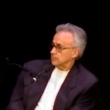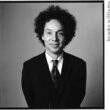The Hidden Brain: How Our Unconscious Minds Elect Presidents, Control Markets, Wage Wars, and Save Our Lives
(Libby/OverDrive eAudiobook)
Available Platforms
Description
More Details
Similar Titles From NoveList
Similar Authors From NoveList
Published Reviews
Choice Review
Writing with a journalist's flair for the dramatic example and evidencing skill for locating relevant supporting research, Vedantam (columnist, The Washington Post; Nieman fellow) provides a wide-ranging view of the influence that "out-of-awareness," or unconscious processes, plays in behavior. Using numerous well-documented examples, the author describes the subtle effects of perceptual and cognitive biases that come into play in circumstances and behaviors ranging from intimate and interpersonal encounters to eyewitness testimony, racial prejudice, emergency situations, suicidal terrorism, and international socioeconomic relationships. The author has a tendency to stretch the application of what he calls unconscious effect beyond what is completely justifiable. For example, he offers a skillful, compelling description of the Jonestown suicides, but his description of the significant potency of unconscious bias is tenuous and speculative: the premise Vedantam is trying to illustrate is that even actions as seemingly planned and well organized as Jonestown (or terrorist acts) are performed unknowingly through the processes of the "hidden brain." This caveat aside, this is science reporting at its best; with supervision, the book would make a useful supplementary resource for undergraduates studying social psychology, motivation, political science, criminal justice, and law. Summing Up: Recommended. Lower- and upper-division undergraduates; general readers. D. M. Chirico York College CUNY
Booklist Review
A Washington Post science writer, Vedantam explores the findings of social psychologists about unconscious bias. Recounting people's stories, he grips attention immediately. Introducing a rape victim whose mistake in identifying her assailant was revealed by DNA evidence that exonerated him, Vedantam establishes his theme of how people get things wrong (in the crime-and-punishment category, he adds death-penalty cases involving possible misidentification) or behave seemingly irrationally. After each individual story, the author repairs to relevant psychological studies. To Vedantam, the studies reveal that subtle biases unconsciously coexist alongside people's conscious convictions that they are free of prejudice. He cites examples such as Senator George Allen, whose racial remark ended his career; the electorate's perception of candidate Barack Obama; and the sexual discrimination case of Lilly Ledbetter. Branching into other arenas, such as crowd behavior during crisis situations and the minds of suicide bombers, Vedantam highlights a mental battle of which, he wants his readers to learn, they are largely unaware. This work has strong appeal for the psychology audience.--Taylor, Gilbert Copyright 2009 Booklist
Publisher's Weekly Review
Washington Post science journalist Vedantam theorizes that there's a hidden world in our heads filled with unconscious biases, often small, hidden errors in thinking that manipulate our attitudes and actions without our knowing it. Autonomy is a myth, he says, because knowledge and rational intention are not responsible for our choices. This thesis is not news- since Freud, psychologists have taken the unconscious into account-but Vedanta argues that if we are influenced sometimes, then why not all the time, whether we're launching a romance or a genocide. This is a frightening leap in logic. In anecdotal, journalistic prose, we learn that, through bias, rape victims can misidentify their attacker; people are more honest even with just a subtle indication that they are being watched; polite behavior has to do with the frontotemporal lobes rather than with how one was raised; and that we can be unconsciously racist and sexist. Though drawing on the latest psychological research, Vedantam's conclusions are either trite or unconvincing. (Jan. 19) (c) Copyright PWxyz, LLC. All rights reserved
Library Journal Review
In language that will be accessible to many readers, science journalist Vedantam (columnist, "Department of Human Behavior," Washington Post) writes about "unconscious biases" in language. According to him, our unconscious biases exert a good deal more control over our lives than most of us realize, in areas ranging from first impressions to how we vote. Vedantam draws on scientific research about the brain as well as anecdotes gleaned from his work as a journalist, all to present a picture of what he terms the "hidden brain." The results make for compelling reading about how our minds work without our knowledge, but some casual readers might be confused about what represents the author's opinion and what comes from the academic literature. (The book lacks end notes or bibliography.) Verdict This book will appeal to fans of Vedantam's column, as well as others interested in reading about this subject in lay readers' terms and through personal anecdotes. Serious scholars of the social sciences will probably feel that Vedantam's conclusions are somewhat oversimplified. [See "Prepub Exploded," BookSmack!, 8/6/09.]-Madeline Mundt, Univ. of Nevada Lib., Reno (c) Copyright 2010. Library Journals LLC, a wholly owned subsidiary of Media Source, Inc. No redistribution permitted.
Kirkus Book Review
A disturbing but enlightening look at the power of the unconscious over human action and decision-making. Why did virtually everyone on the 88th floor of the South Tower of the World Trade Center survive on 9/11, while almost all of those on the 89th floor perished? Washington Post behavior columnist Vedantam (The Ghosts of Kashmir, 2006) uses that question to demonstrate how even the strongest willed can be subject to their unconscious minds. Sometimes this agency is for the good; often, however, our unconscious biases lead us into error. Shunning Freudian interpretation for more recent, evidence-based science, Vedantam cites studies in the United States, Canada and Europe that demonstrate how people are easily misled into acting on biases they would be shocked to learn they had. An honor box in a British office's coffee room fills faster when a printed request for contributions is accompanied by a pair of watchful eyes. More harmful, people tend to rate the intelligence or competence of a total stranger downward when they are merely proximate tonot necessarily interacting withan overweight person. Transsexuals who become men improve their lot while those who become women suffer economically and socially, all other aspects of their personalities remaining equal. School children of all races persist in applying positive attributes to white strangers and negative ones to people of color. These studies, Vedantam says, point out the tendency of humans to be ruled by the oceanic portion of our mind that keep us functioning in a complex world, while the conscious mind attends to only what it needs toshockingly little in comparison. A tour into dark realms of the psyche by a personable guide. Copyright Kirkus Reviews, used with permission.
Booklist Reviews
A Washington Post science writer, Vedantam explores the findings of social psychologists about unconscious bias. Recounting people's stories, he grips attention immediately. Introducing a rape victim whose mistake in identifying her assailant was revealed by DNA evidence that exonerated him, Vedantam establishes his theme of how people get things wrong (in the crime-and-punishment category, he adds death-penalty cases involving possible misidentification) or behave seemingly irrationally. After each individual story, the author repairs to relevant psychological studies. To Vedantam, the studies reveal that subtle biases unconsciously coexist alongside people's conscious convictions that they are free of prejudice. He cites examples such as Senator George Allen, whose racial remark ended his career; the electorate's perception of candidate Barack Obama; and the sexual discrimination case of Lilly Ledbetter. Branching into other arenas, such as crowd behavior during crisis situations and the minds of suicide bombers, Vedantam highlights a mental battle of which, he wants his readers to learn, they are largely unaware. This work has strong appeal for the psychology audience. Copyright 2009 Booklist Reviews.
LJ Express Reviews
In language that will be accessible to many readers, science journalist Vedantam (columnist, "Department of Human Behavior," Washington Post) writes about "unconscious biases" in language. According to him, our unconscious biases exert a good deal more control over our lives than most of us realize, in areas ranging from first impressions to how we vote. Vedantam draws on scientific research about the brain as well as anecdotes gleaned from his work as a journalist, all to present a picture of what he terms the "hidden brain." The results make for compelling reading about how our minds work without our knowledge, but some casual readers might be confused about what represents the author's opinion and what comes from the academic literature. (The book lacks end notes or bibliography.) Verdict This book will appeal to fans of Vedantam's column, as well as others interested in reading about this subject in lay readers' terms and through personal anecdotes. Serious scholars of the social sciences will probably feel that Vedantam's conclusions are somewhat oversimplified. [See "Prepub Exploded," BookSmack!, 8/6/09.]-Madeline Mundt, Univ. of Nevada Lib., Reno Copyright 2009 Reed Business Information.
Publishers Weekly Reviews
Washington Post science journalist Vedantam theorizes that there's a hidden world in our heads filled with unconscious biases, often small, hidden errors in thinking that manipulate our attitudes and actions without our knowing it. Autonomy is a myth, he says, because knowledge and rational intention are not responsible for our choices. This thesis is not news— since Freud, psychologists have taken the unconscious into account—but Vedanta argues that if we are influenced sometimes, then why not all the time, whether we're launching a romance or a genocide. This is a frightening leap in logic. In anecdotal, journalistic prose, we learn that, through bias, rape victims can misidentify their attacker; people are more honest even with just a subtle indication that they are being watched; polite behavior has to do with the frontotemporal lobes rather than with how one was raised; and that we can be unconsciously racist and sexist. Though drawing on the latest psychological research, Vedantam's conclusions are either trite or unconvincing. (Jan. 19)
[Page 44]. Copyright 2009 Reed Business Information.Reviews from GoodReads
Citations
Vedantam, S., & West, S. (2010). The Hidden Brain: How Our Unconscious Minds Elect Presidents, Control Markets, Wage Wars, and Save Our Lives (Unabridged). Books on Tape.
Chicago / Turabian - Author Date Citation, 17th Edition (style guide)Vedantam, Shankar and Steve West. 2010. The Hidden Brain: How Our Unconscious Minds Elect Presidents, Control Markets, Wage Wars, and Save Our Lives. Books on Tape.
Chicago / Turabian - Humanities (Notes and Bibliography) Citation, 17th Edition (style guide)Vedantam, Shankar and Steve West. The Hidden Brain: How Our Unconscious Minds Elect Presidents, Control Markets, Wage Wars, and Save Our Lives Books on Tape, 2010.
Harvard Citation (style guide)Vedantam, S. and West, S. (2010). The hidden brain: how our unconscious minds elect presidents, control markets, wage wars, and save our lives. Unabridged Books on Tape.
MLA Citation, 9th Edition (style guide)Vedantam, Shankar, and Steve West. The Hidden Brain: How Our Unconscious Minds Elect Presidents, Control Markets, Wage Wars, and Save Our Lives Unabridged, Books on Tape, 2010.
Copy Details
| Collection | Owned | Available | Number of Holds |
|---|---|---|---|
| Libby | 1 | 1 | 0 |



































